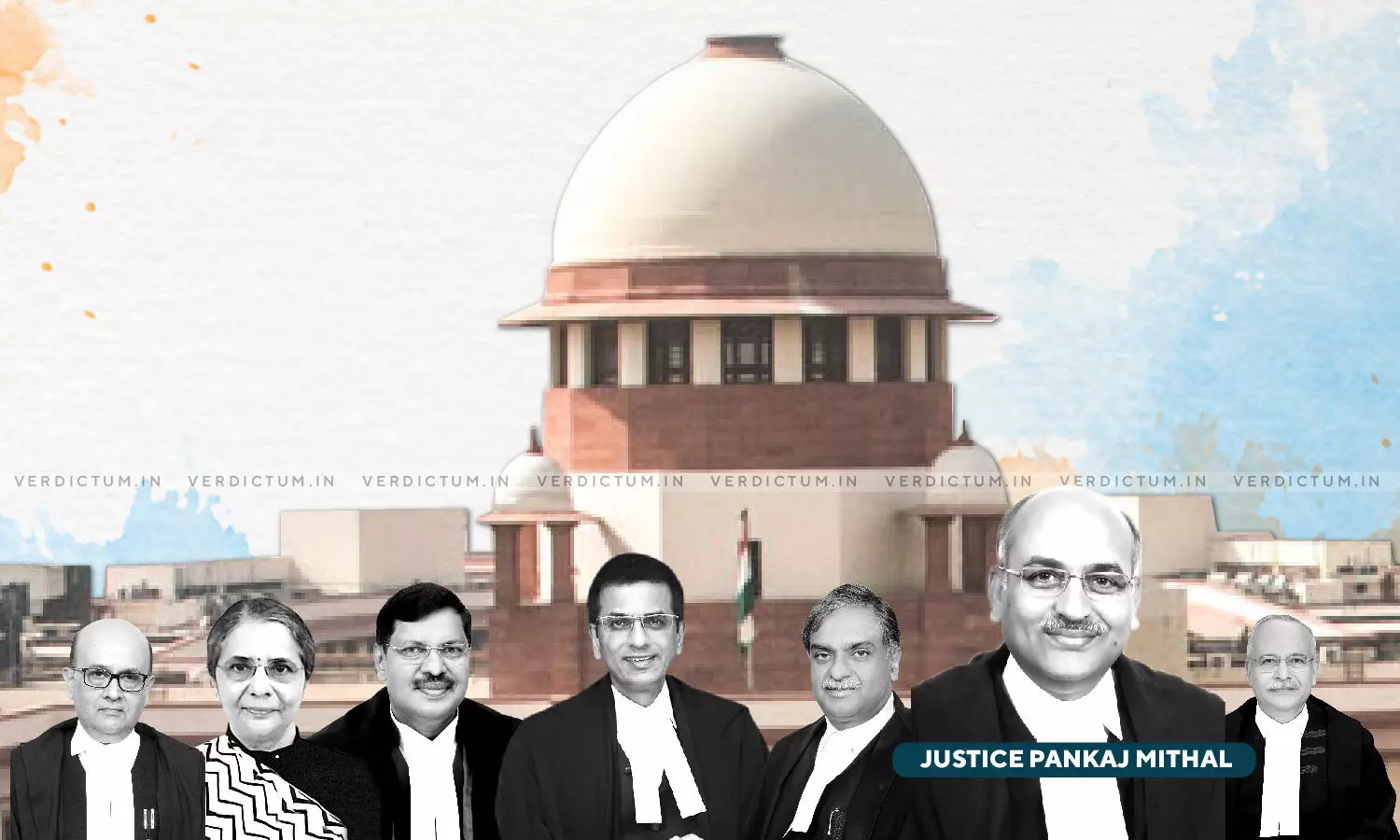
Breaking| Reservation Must Be On Criteria Other Than Caste, It Must Be Limited To First Generation If Higher Status Has Been Achieved: Concurring Opinion Of Justice Pankaj Mithal
 |
|The Supreme Court, today, while pronouncing the judgment with 6:1 majority holding the sub-classification of the Scheduled Castes and Scheduled Tribe permissible, has in the concurring opinion of Justice Pankaj Mithal held that the reservation must be limited only to the first generation and that it must be on some criteria other than caste since the Constitution does not have a caste system and the country has moved into a caste-less society.
A seven-judge Bench of the Supreme Court pronounced the judgment that sub-classification of the Scheduled Caste and Scheduled Tribe categories is permissible. There are six opinions in the judgement. Justice Bela Trivedi has dissented.
Justice Pankaj Mithal gave a concurring judgment and held, "The policy of reservation as enshrined under the Constitution and by its various Amendments require a fresh relook and evolvement of other methods for helping and uplifting the depressed class or the downtrodden or the persons belonging to the Scheduled Castes and Scheduled Tribe; and other that backward classes communities. So long as no new method is evolved or adopted, the system of reservation, as prevailing, may continue to occupy the field with the power to permit sub-classification of a class, particularly in Scheduled Caste".
The Judge further held, "In the constitution, there is no caste system and the country has moved into a caste-less society except for giving provision under the Constitution for the limited purpose of affording reservation to the depressed class of persons or belonging to downtrodden or SC/ST. Therefore any facility or privilege for the promotion of the above category of persons has to be on a totally different criteria other than the caste. May be on economic or financial factors or status of living, vocation, the facilities available to each one of them based upon their place of living, urban or rural. Reservation, if any, has to be limited only for the first generation or one generation. If any generation in the family has taken advantage of the reservations and has achieved higher status, the benefit of reservation would not logically be available to the second generation. It is reiterated that periodical exercise has to be undertaken to exclude class of persons, who after taking advantage of reservation have come to march shoulder to shoulder with the general category."
The majority held that sub-classification is permissible. CJI Chandrachud authored an opinion for himself and Justice Manoj Misra. Justice Gavai and Justice Mithal have authored separate concurring opinions. Justice Gavai and the CJI have agreed with each other's conclusion. Justice Nath and Justice Sharma have agreed with the opinions of the CJI and Justice Gavai, while Justice Trivedi dissented.
Justice Bela M Trivedi pronounced the dissenting opinion, and started by saying that dissent is important to strengthen the law in future for the democratic functioning of the judiciary. The judge held that the manner in which the three-judge bench referred the matter to a larger bench without assigning reasons was not proper. The Judge held that only the Parliament can modify the list of SCs or STs and that even the President cannot modify the same with a notification. She held that the sub-classification by the state will amount to tinkering with the notification issued by the President. She also held that sub-classification will amount to discrimination against the excluded categories. Justice Trivedi held that the decision in E.V.Chinnaiah v. State of Andhra Pradesh is correct.
The judgment was reserved on February 8, 2024. The matter was referred to a 7-judge bench by a 5-judge bench in the year 2020 in the case of State of Punjab v. Davinder Singh. The 5-judge bench held that the judgment of the coordinate bench in the case of E.V.Chinnaiah v. State of Andhra Pradesh, (2005 SC) observing that sub-classification was not permissible, was required to be reconsidered.
Cause Title: The State of Punjab and Ors. v. Davinder Singh and Ors. (C.A. No. 2317/2011)
Video of the pronouncement can be viewed here.
Click here to read/download the Judgment